- Back to Home »
- Unfair verdict on Manning
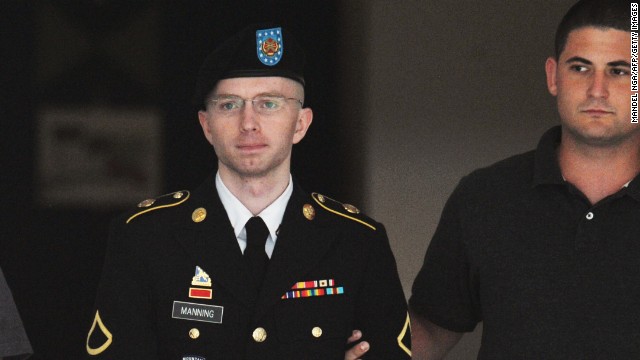
- Douglas Rushkoff: Manning found guilty of espionage. Why is whistle-blowing punishable?
- He says U.S. government hasn't faced it can't control info in digital age of easy access
- He says Manning exposed objectionable official actions of U.S.--not secrets, but approaches
- Rushkoff: The transparency of a digital age means U.S. has no choice but to do right thing
Editor's note: Douglas Rushkoff writes a regular column for CNN.com. He is a media theorist and the author of the new book "Present Shock: When Everything Happens Now."
(CNN) -- Pfc. Bradley Manning, who provided classified government documents to Wikileaks detailing, among other things, America's undisclosed policies on torture, was found guilty of espionage on Tuesday. The verdict comes on the 235th anniversary of the passage of America's first whistle-blower protection law, approved by the Continental Congress after two Navy officers were arrested and harassed for having reported the torture of British prisoners.
How have we gotten to the place where the revelation of torture is no longer laudable whistle-blowing, but now counts as espionage?
The answer is that government has not yet come to terms with the persistence and transparency of the digital age. Information moves so fast and to so many places that controlling it is no longer an option. Every datapoint, whether a perverted tweet by an aspiring mayor or a classified video of Reuters news staffers being gunned down by an Apache helicopter, will somehow find the light of day. It's enough to make any administration tremble, but it's particularly traumatic for one with things to hide.
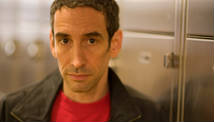
That's why they tried to throw the book, and then some, at Manning.
Prosecutors cast simple Internet commands known to any halfway literate Internet user (or anyone who used the Internet back in the early '90s) as clandestine codes used only by hackers to steal data. That Osama bin Laden could download these files off the Wikileaks website (along with millions of other people) became justification for classifying the whistle-blowing as espionage, an act of war. And Manning is just one of a record seven Americans charged with violating the Espionage Act in a single administration.
But prosecuting those whose keyboards or USB sticks may have been technically responsible for the revelations is futile. The more networked we become and the more data we collect, the more likely something will eventually find its way out. After all, a security culture based on surveillance and big data cuts both ways.
Moreover, harsh reaction to digital whistle-blowers only increases the greater population's suspicions that more information is being hidden.
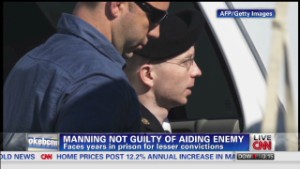 Manning not guilty of aiding enemy
Manning not guilty of aiding enemy 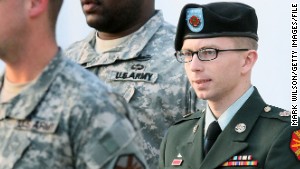 Manning smiles after hearing verdict
Manning smiles after hearing verdict 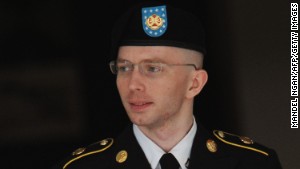 Manning not guilty of aiding enemy
Manning not guilty of aiding enemy 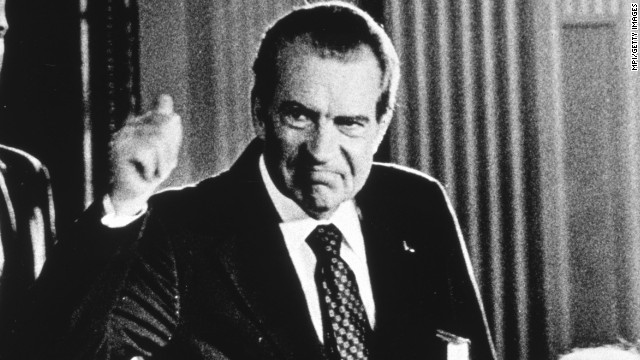 Some did it for the money, some did it for idealism, others didn't do it at all. The U.S. has seen a number of high profile leak scandals including the Pentagon Papers during the administration of President Richard Nixon. Click through to see more high-profile intelligence leaking cases.
Some did it for the money, some did it for idealism, others didn't do it at all. The U.S. has seen a number of high profile leak scandals including the Pentagon Papers during the administration of President Richard Nixon. Click through to see more high-profile intelligence leaking cases. 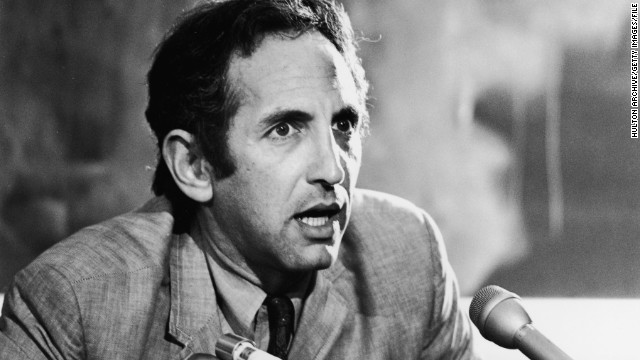 Military analyst Daniel Ellsberg leaked the 7,000-page Pentagon Papers in 1971. The top-secret documents revealed that senior American leaders, including three presidents, knew the Vietnam War was an unwinnable, tragic quagmire. Further, they showed that the government had lied to Congress and the public about the progress of the war. Ellsberg surrendered to authorities and was charged as a spy. During his trial, the court learned that President Richard Nixon's administration had embarked on a campaign to discredit Ellsberg, illegally wiretapping him and breaking into his psychiatrist's office. All charges against him were dropped. Since then he has lived a relatively quiet life as a respected author and lecturer.
Military analyst Daniel Ellsberg leaked the 7,000-page Pentagon Papers in 1971. The top-secret documents revealed that senior American leaders, including three presidents, knew the Vietnam War was an unwinnable, tragic quagmire. Further, they showed that the government had lied to Congress and the public about the progress of the war. Ellsberg surrendered to authorities and was charged as a spy. During his trial, the court learned that President Richard Nixon's administration had embarked on a campaign to discredit Ellsberg, illegally wiretapping him and breaking into his psychiatrist's office. All charges against him were dropped. Since then he has lived a relatively quiet life as a respected author and lecturer. 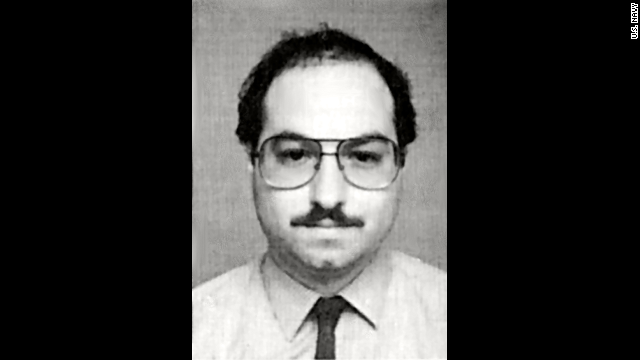 Jonathan Pollard is a divisive figure in U.S.-Israel relations. The former U.S. Navy intelligence analyst was caught spying for Israel in 1985 and was sentenced in 1987 to life imprisonment. Israeli Prime Minister Benjamin Netanyahu has publicly called for President Barack Obama to release Pollard after Pollard's wife appealed to Netanyahu.
Jonathan Pollard is a divisive figure in U.S.-Israel relations. The former U.S. Navy intelligence analyst was caught spying for Israel in 1985 and was sentenced in 1987 to life imprisonment. Israeli Prime Minister Benjamin Netanyahu has publicly called for President Barack Obama to release Pollard after Pollard's wife appealed to Netanyahu. 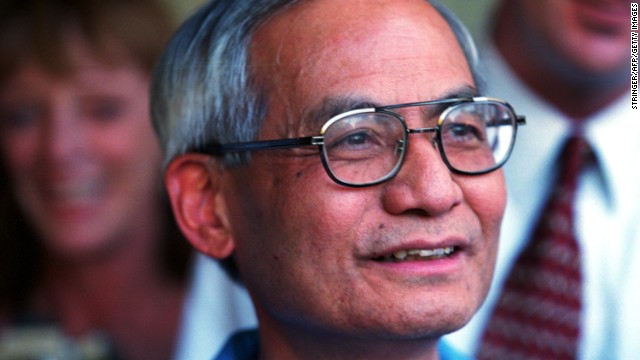 Wen Ho Lee was a scientist at the Los Alamos Laboratory in New Mexico who was charged with 59 counts of downloading classified information onto computer tapes and passing it to China. Lee eventually agreed to plead guilty to a since count of mishandling classified information after prosecutors deemed their case to be too weak. He was released after nine months in solitary confinement. Lee later received a $1.6 million in separate settlements with the government and five news agencies after he sued them, accusing the government of leaking damaging information about him to the media.
Wen Ho Lee was a scientist at the Los Alamos Laboratory in New Mexico who was charged with 59 counts of downloading classified information onto computer tapes and passing it to China. Lee eventually agreed to plead guilty to a since count of mishandling classified information after prosecutors deemed their case to be too weak. He was released after nine months in solitary confinement. Lee later received a $1.6 million in separate settlements with the government and five news agencies after he sued them, accusing the government of leaking damaging information about him to the media. 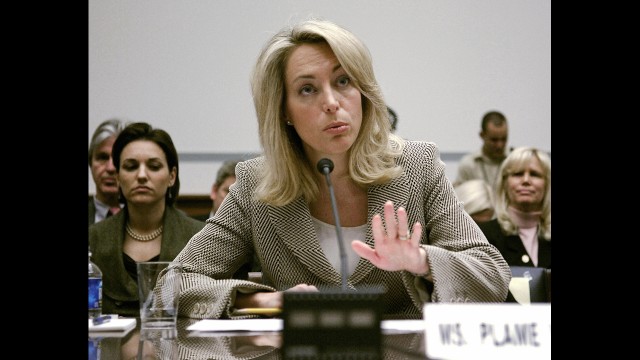 Members of the Bush administration were accused retaliating against Valerie Plame, pictured, by blowing her cover in 2003 as a U.S. intelligence operative, after her husband, former Ambassador Joe Wilson, wrote a series of New York Times op-eds questioning the basis of certain facts the administration used to make the argument to go to war in Iraq.
Members of the Bush administration were accused retaliating against Valerie Plame, pictured, by blowing her cover in 2003 as a U.S. intelligence operative, after her husband, former Ambassador Joe Wilson, wrote a series of New York Times op-eds questioning the basis of certain facts the administration used to make the argument to go to war in Iraq. 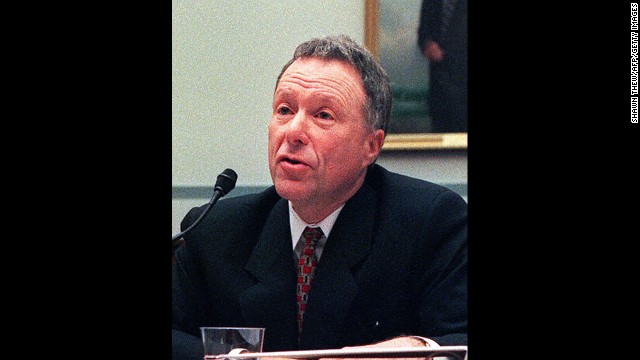 In 2007, Lewis "Scooter" Libby, Vice President Dick Cheney's former chief of staff, was convicted on charges related to the leak of the identity of CIA operative Valerie Plame. Libby was convicted of obstruction of justice and perjury in connection with the case. His 30-month sentence was commuted by President George W. Bush. Cheney told a special prosecutor in 2004 that he had no idea who leaked the information.
In 2007, Lewis "Scooter" Libby, Vice President Dick Cheney's former chief of staff, was convicted on charges related to the leak of the identity of CIA operative Valerie Plame. Libby was convicted of obstruction of justice and perjury in connection with the case. His 30-month sentence was commuted by President George W. Bush. Cheney told a special prosecutor in 2004 that he had no idea who leaked the information. 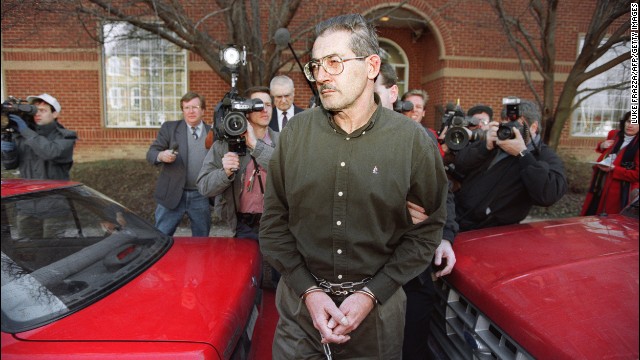 Aldrich Ames, a 31-year CIA employee, pleaded guilty to espionage charges in 1994 and was sentenced to life in prison. Ames was a CIA case worker who specialized in Soviet intelligence services and had been passing classified information to the KGB since 1985. U.S. intelligence officials believe that information passed along by Ames led to the arrest and execution of Russian officials they had recruited to spy for them.
Aldrich Ames, a 31-year CIA employee, pleaded guilty to espionage charges in 1994 and was sentenced to life in prison. Ames was a CIA case worker who specialized in Soviet intelligence services and had been passing classified information to the KGB since 1985. U.S. intelligence officials believe that information passed along by Ames led to the arrest and execution of Russian officials they had recruited to spy for them. 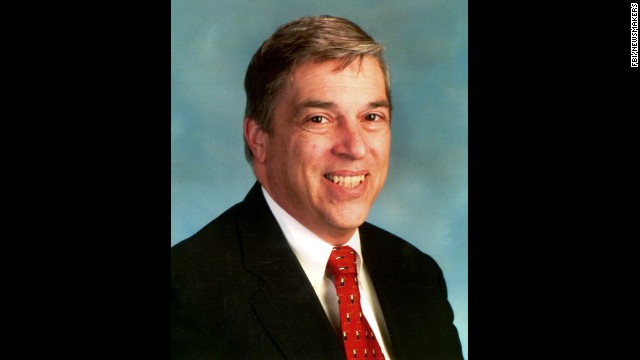 Robert Hanssen pleaded guilty to espionage charges in 2001 in return for the government not seeking the death penalty. Hanssen began spying for the Soviet Union in 1979, three years after going to work for the FBI and prosecutors said he collected $1.4 million for the information he turned over to the Cold War enemy. In 1981, Hanssen's wife caught him with classified documents and convinced him to stop spying, but he started passing secrets to the Soviets again four years later. In 1991, he broke off relations with the KGB, but resumed his espionage career in 1999, this time with the Russian Intelligence Service. He was arrested after making a drop in a Virginia park in 2001.
Robert Hanssen pleaded guilty to espionage charges in 2001 in return for the government not seeking the death penalty. Hanssen began spying for the Soviet Union in 1979, three years after going to work for the FBI and prosecutors said he collected $1.4 million for the information he turned over to the Cold War enemy. In 1981, Hanssen's wife caught him with classified documents and convinced him to stop spying, but he started passing secrets to the Soviets again four years later. In 1991, he broke off relations with the KGB, but resumed his espionage career in 1999, this time with the Russian Intelligence Service. He was arrested after making a drop in a Virginia park in 2001. 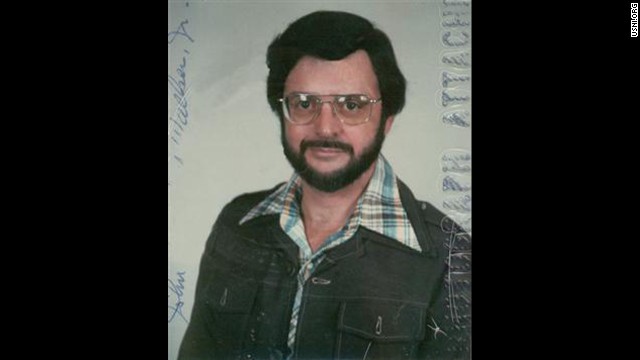 John Walker ran a father and son spy ring, passing classified material to the Soviet Union from 1967 to 1985. Walker was a Navy communication specialist with financial difficulties when he walked into the Soviet Embassy and sold a piece of cyphering equipment. Navy and Defense officials said that Walker enabled the Soviet Union to unscramble military communications and pinpoint the location of U.S. submarines at all times. As part of his plea deal, prosecutors promised leniency for Walker's son Michael Walker, a former Navy seaman.
John Walker ran a father and son spy ring, passing classified material to the Soviet Union from 1967 to 1985. Walker was a Navy communication specialist with financial difficulties when he walked into the Soviet Embassy and sold a piece of cyphering equipment. Navy and Defense officials said that Walker enabled the Soviet Union to unscramble military communications and pinpoint the location of U.S. submarines at all times. As part of his plea deal, prosecutors promised leniency for Walker's son Michael Walker, a former Navy seaman. 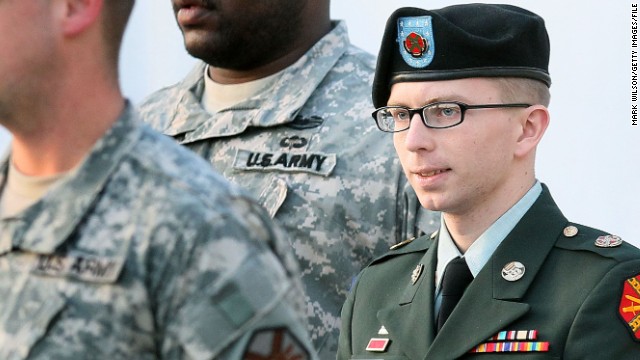 Pfc. Bradley Manning is an Army intelligence specialist who is charged with passing along classified material to WikiLeaks, a group that facilitates anonymous leaking of secret information. Manning pleaded guilty to 10 of the 22 charges against him and could face 20 years in prison. But he pleaded not guilty to the most serious charge, aiding U.S. enemies, which carries a potential life sentence.
Pfc. Bradley Manning is an Army intelligence specialist who is charged with passing along classified material to WikiLeaks, a group that facilitates anonymous leaking of secret information. Manning pleaded guilty to 10 of the 22 charges against him and could face 20 years in prison. But he pleaded not guilty to the most serious charge, aiding U.S. enemies, which carries a potential life sentence. 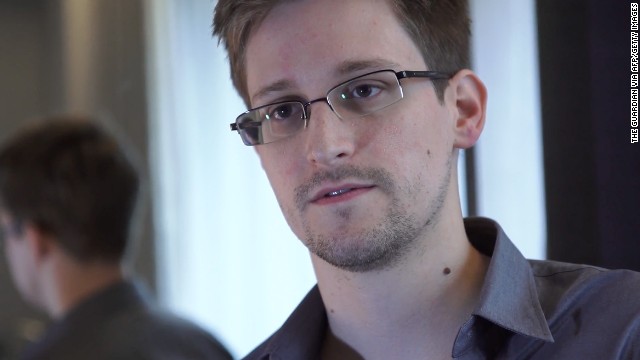 Former intelligence contractor Edward Snowden revealed himself as the leaker of details of U.S. government surveillance programs run by the U.S. National Security Agency to track cell phone calls and monitor the e-mail and Internet traffic of virtually all Americans. Snowden fled to Hong Kong after copying one last set of documents and telling his boss he needed to go away for medical treatment.
Former intelligence contractor Edward Snowden revealed himself as the leaker of details of U.S. government surveillance programs run by the U.S. National Security Agency to track cell phone calls and monitor the e-mail and Internet traffic of virtually all Americans. Snowden fled to Hong Kong after copying one last set of documents and telling his boss he needed to go away for medical treatment.  Sharing secrets: U.S. intelligence leaks
Sharing secrets: U.S. intelligence leaks In this one leaking incident, Manning exposed allegations of torture, undisclosed civilian death tolls in Afghanistan and Iraq, official orders not to investigate torture by nations holding our prisoners, accusations of the torture of Spanish prisoners at Guantanamo, the "collateral murder" video of Reuters journalists and Iraqi civilians as U.S. soldiers cheered, U.S. State Department support of corporations opposing Haitian minimum wage, training of Egyptian torturers by the FBI in Quantico, Virginia, U.S. authorized stealing of U.N. Secretary General's DNA -- the list goes on.
These are not launch codes for nuclear strikes, operational secrets or even plans for future military missions. Rather, they are documentation of past activity and officially sanctioned military and state policy. These are not our secrets, but our ongoing actions and approaches.
A thinking government--a virtuous one, if we can still use such a word--would treat this as a necessary intervention. Things have gone too far. But ours is a government in "present shock": an always-on, always-connected population puts the administration in a state of perpetual emergency interruption. It's not the phone call at 2 a.m. for which a president has to be prepared, but the tweet at 3, the Facebook update at 4, the YouTube video at 5, and on and on.
In such a crisis-to-crisis landscape, there's no time to implement or even articulate a "grand narrative." A real-time, digital world offers no sense of mission or opportunity to tell a story. There's no Cold War to win. No moon shot to work toward. There are just emergent threats, one after the other after the other. Things just exist in the present, one tweet - or, actually, many tweets - at a time.
This makes it exceedingly difficult to frame our policies and strategies with language and purpose. It's no longer a matter of walking the talk. Without the talk, there's only the walk. We have no way of judging the ethics and intentions of our government except by what it actually does.
Combine this with the transparency that comes with digital technology and our leaders simply have no choice but to do the right thing. It takes more energy to prevent exposure than simply to behave consistently with the values we want to project.
Just as corporations are learning that they can no longer maintain low prices through overseas slave labor without getting caught, a democratic government can no longer maintain security through torture and coercion without being exposed. Betraying our respect for human dignity only makes us less resolved as a people, and less trusted as a nation.
We are just beginning to learn what makes a free people secure in a digital age. It really is different. The Cold War was an era of paper records, locked vaults and state secrets, for which a cloak-and-dagger mindset may have been appropriate. In a digital environment, our security comes not from our ability to keep our secrets but rather our ability to live our truth.
Follow us on Twitter @CNNOpinion.
Join us on Facebook/CNNOpinion.
The opinions expressed in this commentary are solely those of Douglas Rushkoff.







